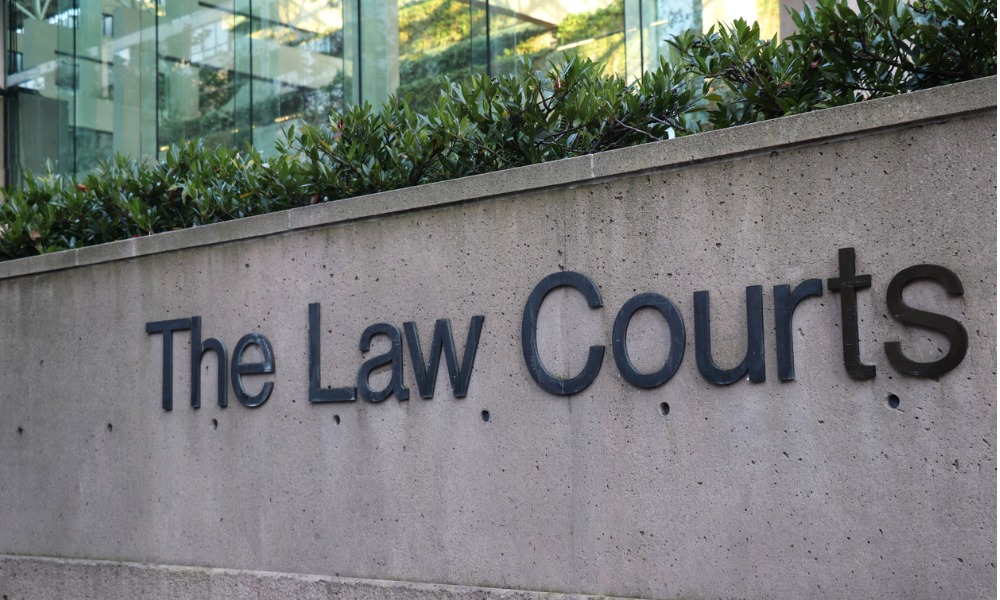
She was not a 'household' member of a person named in owner's certificate: court

The BC Court of Appeal has upheld an arbitrator's finding that the applicant was not a “member of a household” of a person named in an owner’s certificate when she was injured in a motor vehicle accident and consequently was not "insured."
In Mazzei v. Insurance Corporation of British Columbia, 2023 BCCA 367, Sebrina Mazzei suffered serious injuries when she and three other persons were riding as passengers in a vehicle that left the roadway and went down an embankment while travelling near Oyama, BC.
The vehicle's driver, in which Mazzei was a passenger, was at fault for the accident. Since he did not have third-party liability insurance coverage, he was an uninsured motorist under the Insurance (Vehicle) Act. Mazzei proceeded to arbitration to determine whether she was "insured" for underinsured motorist protection (UMP) compensation.
At the time of the accident, Mazzei was not named as an owner or renter in an owner's certificate or a person issued a driver's certificate. Nonetheless, she asserted that she met the definition of insured for UMP due to being a member of the household of a person named in an owner's or driver's certificate. Specifically, Mazzei's boyfriend and her father were named owners in an owner certificate for their vehicles.
Under the Insurance (Vehicle) Regulation, an "insured" includes a "member of a household" of a person named as the owner in an owner's certificate or a person holding a driver's license. "Household" means "a person ordinarily dwelling in the same dwelling unit."
The issue in the arbitration was whether Mazzei's boyfriend and her father formed a "household" and were "ordinarily residing" in the one-bedroom apartment where Mazzei lived in Vernon at the time of the accident.
The arbitrator acknowledged that the term "household" has been given a liberal and flexible interpretation and that each case must be considered on its facts. He accepted the applicant's submission that permanence is informative in assessing ordinary residence but is not determinative.
Mazzei contended that since September 2022, "she and her parents and boyfriend all lived as a family unit, as evidenced by everyone contributing to the functioning of the household, including buying groceries, cooking and cleaning." She also argued that "the fact that the living arrangement at the time of the accident was temporary was of no consequence because there was no case law requiring a need for permanency to the mode of living."
However, the arbitrator found that the evidence did not support the conclusion that Mazzei and her boyfriend or Mazzei and her father were customarily or in the settled routine of life, ordinarily residing together. As such, the arbitrator ruled that Mazzei was not a household member of a person named in an owner's or driver's certificate.
Mazzei appealed to the BC Court of Appeal, challenging the arbitrator's application of the law. However, the court ultimately dismissed Mazzei's application, finding that she did not identify an extricable error of law arising out of the arbitrator's award.
The court was not persuaded that the issue framed by Mazzei involved an extricable question of law arising from the award. The court found that the law applied by the arbitrator was settled and non-controversial. The court noted that the cases that Mazzei cited to the arbitrator included consideration of permanence as a relevant factor, although not determinative, in applying the test to determine whether a person is a household member. The arbitrator assessed the degree of permanence in the living arrangements between Mazzei, her boyfriend and her father within the fact-specific circumstances of this case. The court found no indication in the reasons that the arbitrator misunderstood his task. On the contrary, the court found that Mazzei acknowledged that the arbitrator correctly stated the applicable legal principles.
The court pointed out that Mazzei's real complaint was that the arbitrator's test application should have led to a different outcome. The court said this raised a question of mixed fact and law and not a question of law. Given that she had not identified a question of law arising from the award, the court ruled that it had no jurisdiction to entertain her appeal. Accordingly, the court dismissed her application for leave to appeal.